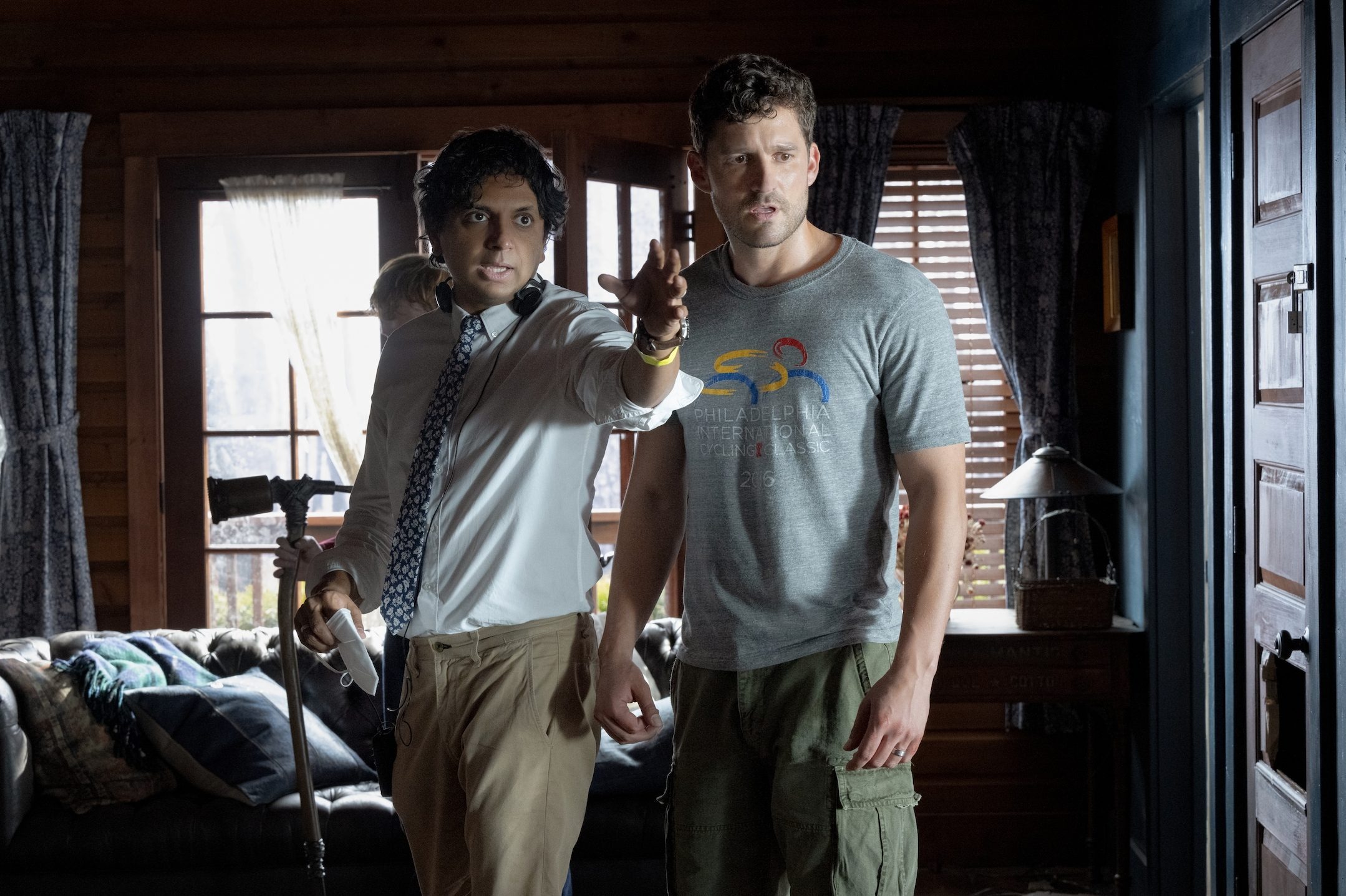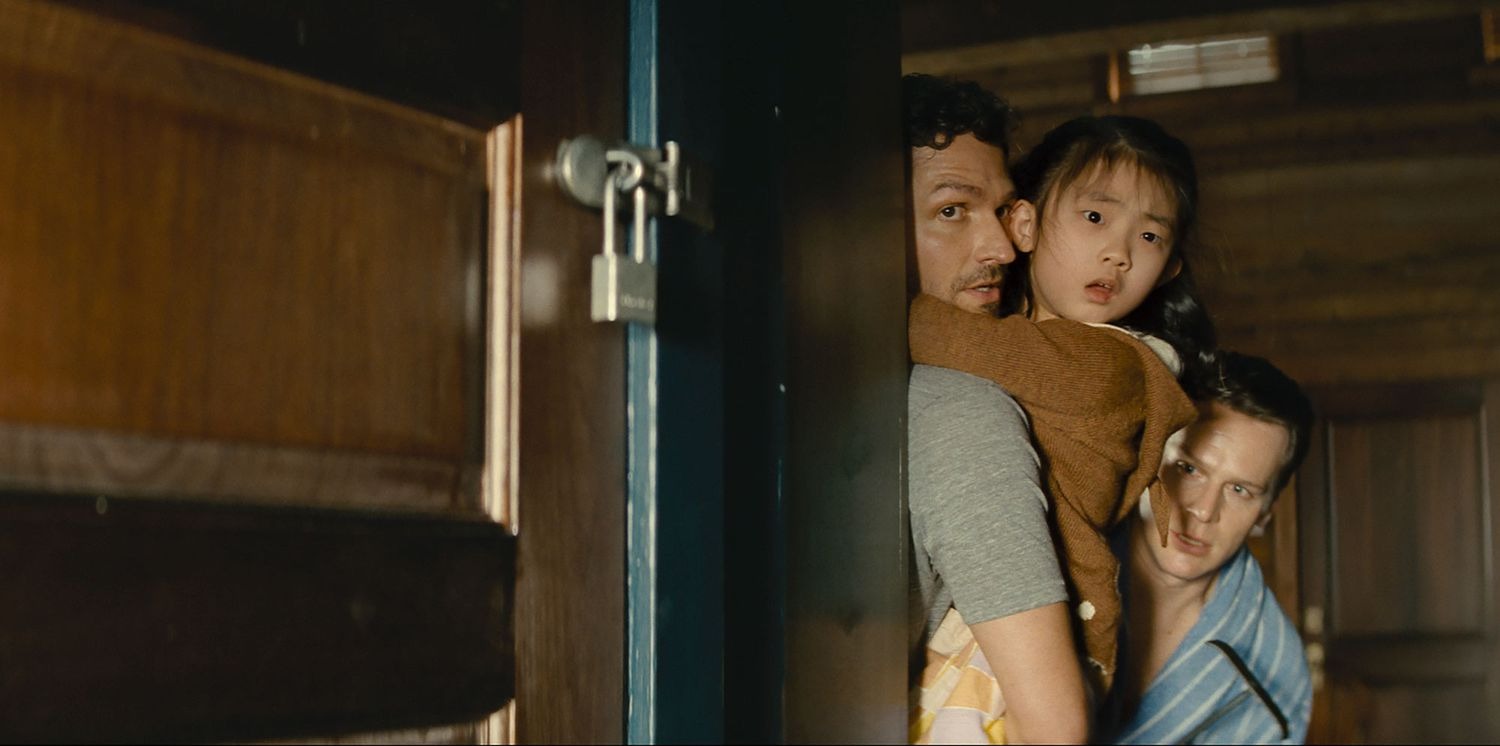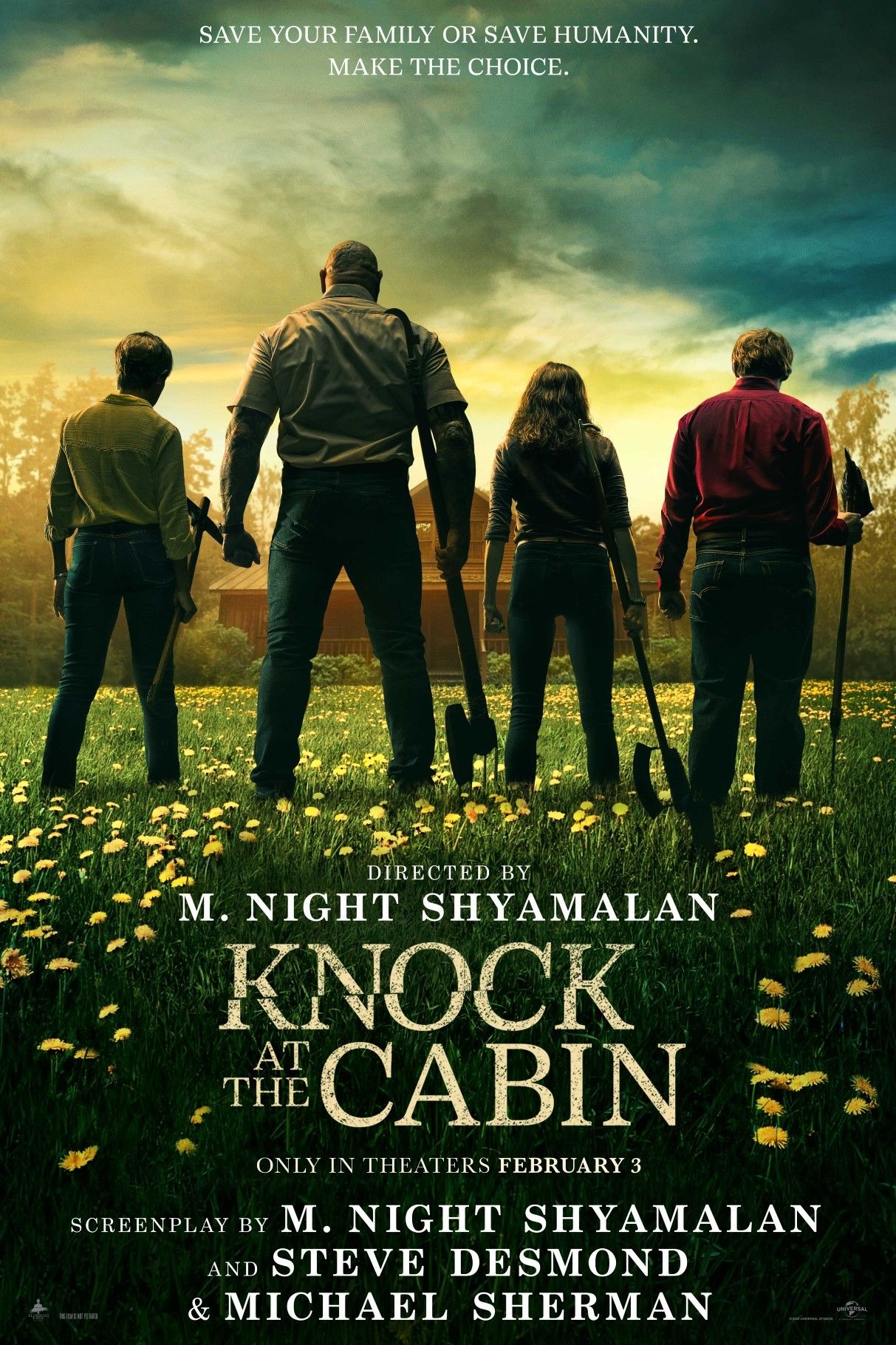Maintaining an air of mystery, the movie keeps viewers on edge as it reveals. The strangers assert that a specific family is selected periodically to determine humanity’s fate.
Andrew and Eric are presumed chosen due to their profound love for each other and their daughter. Through collective visions, these four seemingly unrelated individuals have converged to present this ominous challenge.
With each refusal from Andrew and Eric to make the sacrifice, the strangers execute one of their own using the “tools” they’ve crafted, inspired by visions they claim to have experienced. Their actions begin with Redmond, escalating to Leonard. Each death is intended to unleash a catastrophic plague upon humanity.

Andrew, a lawyer by profession, embodies the logical thinker of the family, offering rational counterarguments to the strangers’ Biblical assertions. Following Redmond’s death, Leonard switches on the television, revealing a recorded tsunami that devastates the California coast, claiming thousands.
Andrew suggests that the kidnappers time these murders to coincide with news broadcasts, labeling them delusional conspiracy theorists fueled by dubious online forums.
Conversely, Eric exhibits greater empathy and is more prone to suggestion. His concussion during the initial attack by the strangers could explain the visions he experiences throughout the film, including glimpses of a human figure bathed in light.
As the family witnesses the strangers’ self-inflicted deaths and the purported plagues depicted on news broadcasts, uncertainty lingers regarding their authenticity. Planes in flight plummet to the ground, an enigmatic virus spreads rapidly across the globe, and erratic lightning strikes ravage the planet without warning.
Although there seems to be hope for survival, the moment arrives for Leonard to take his own life. Before his death, he cautions Andrew and Eric that they have only moments to make a sacrifice; otherwise, they will confront a post-apocalyptic wasteland, leaving Wen as humanity’s last survivor.
Eric, now convinced that the strangers embody the four horsemen of the apocalypse, persuades Andrew to end his life to protect their family and the rest of humanity.
Upon exiting the cabin with Eric’s lifeless body, Andrew and Wen observe a world visibly altered by the plagues. Andrew witnesses at least one plane crashing from the sky, while the ominous clouds above appear to have dispersed.

At a nearby diner, they discover the patrons have been riveted to the same news reports, and now the relieved anchors announce that the aforementioned plagues are abating without any clear explanation.
Tremblay’s book presents a distinctly different narrative. However, Wen dies due to an accidental gunshot during a confrontation with Leonard inside the cabin.
The strangers argue that her death is irrelevant since the family did not willingly choose her as the sacrifice. The concept of choice is not a factor, and this sequence is completely omitted from the film.
Additionally, there are superficial alterations between the book and film. For instance, Andrew uses his car’s gun to kill Adriane in the book, while in the movie, he uses a pistol to shoot Sabrina. However, the most important divergence lies in how the film interprets the conclusion.
In The Cabin at the End of the World, readers are left to reach their own interpretations. The fathers, devastated by their child’s death, decline to kill one another and instead drive away from the cabin with Wen’s body, heading toward an uncertain future.
The film opts for a more conclusive narrative, portraying the strangers as heralds of the apocalypse and asserting that Eric’s sacrifice finally saved billions.



